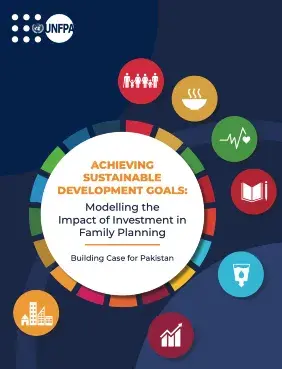Investing in family planning is a necessary step for achieving many of the SDGs. Voluntary family planning programs play an important role in achieving fertility desires and enabling couples to realize their reproductive rights and intentions. Family planning use minimizes life-threatening complications for mothers and their children by reducing fertility-related risks. These risks include pregnancies in which the mother is too young or old, pregnancies that are too closely spaced and too many, and pregnancies that end in unsafe abortion. Besides, family planning use enables population shifts— lower childbearing, lower population growth, and a larger share of working-age adults relative to young children (dependents)—that are conducive for educational, social, and economic growth and beneficial for the individual, household, and country-level development.
What we do
ACHIEVING SUSTAINABLE DEVELOPMENT GOALS: Modelling the Impact of Investment in Family Planning – Building Case for Pakistan

Publisher
Number of pages
16
Author
UNFPA
Publication
ACHIEVING SUSTAINABLE DEVELOPMENT GOALS: Modelling the Impact of Investment in Family Planning – Building Case for Pakistan
Publication date
30 December 2021

